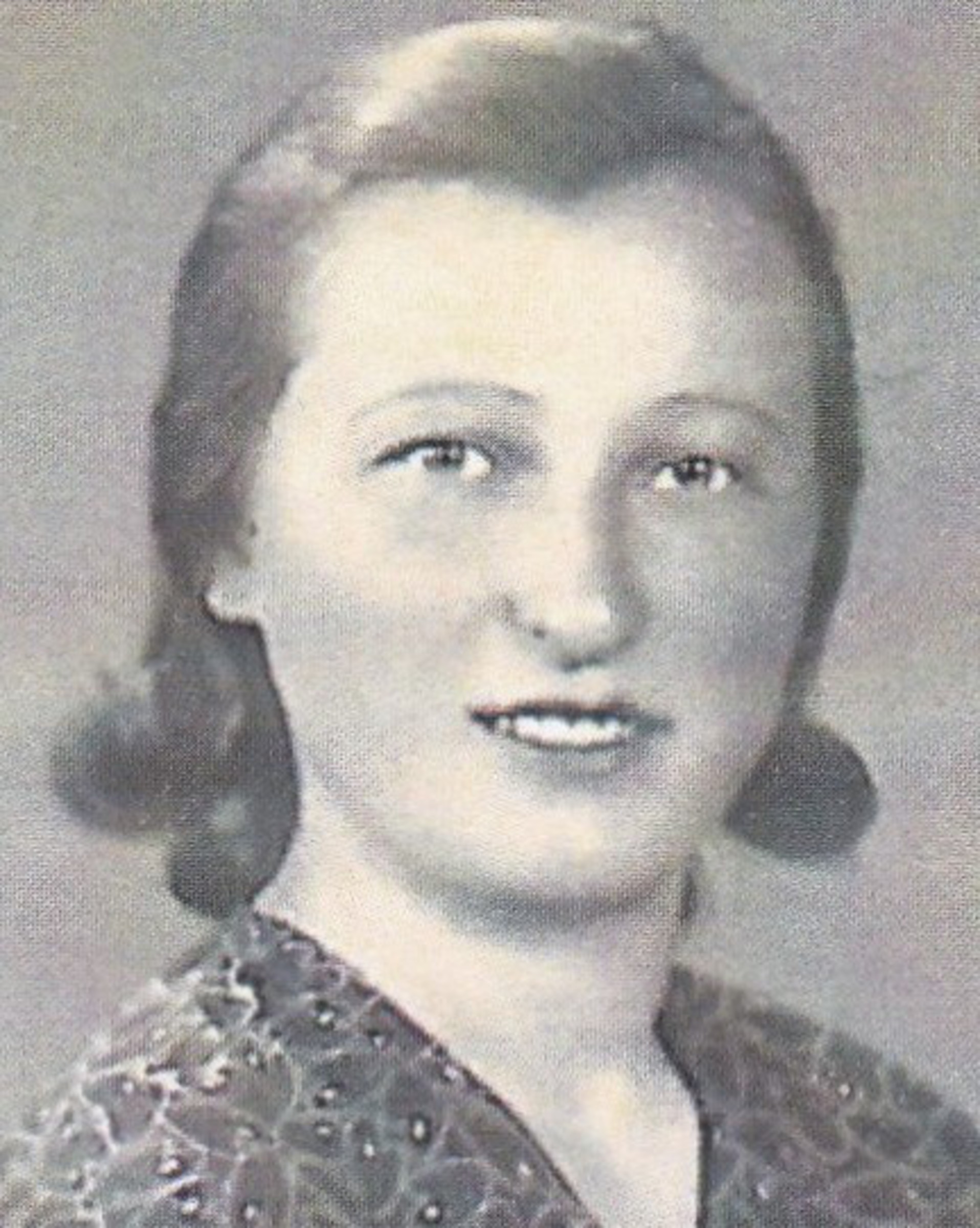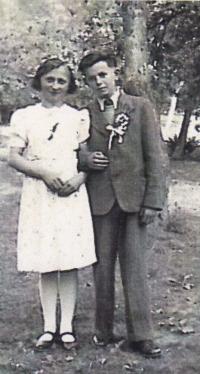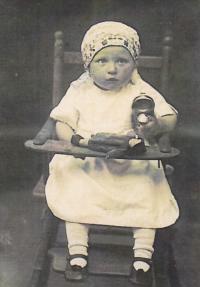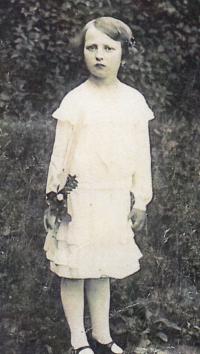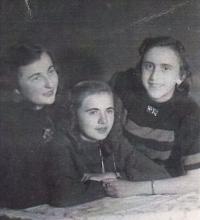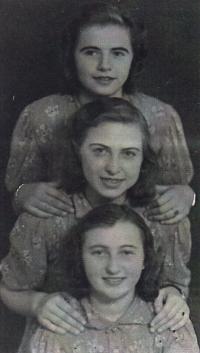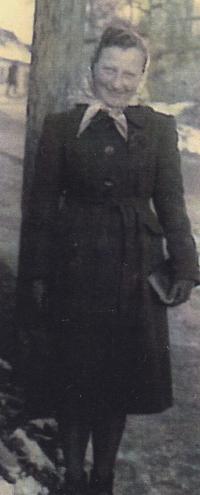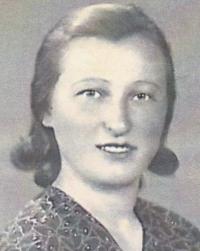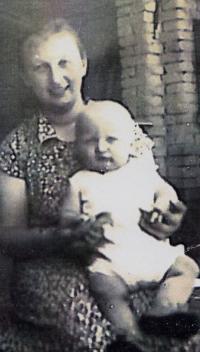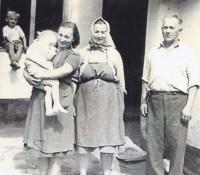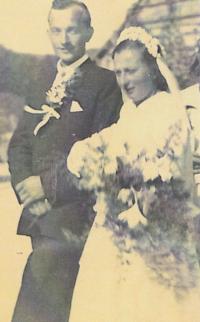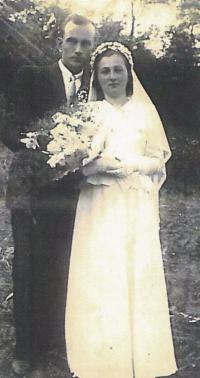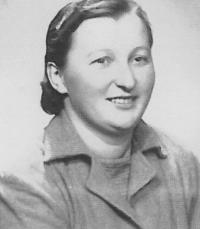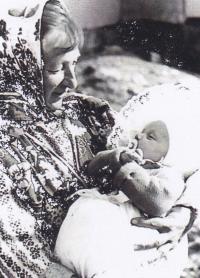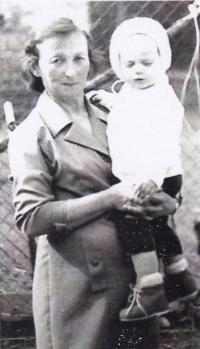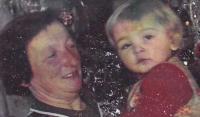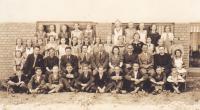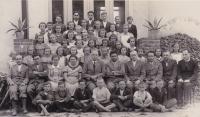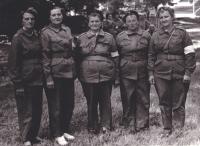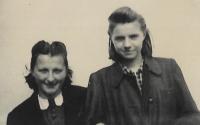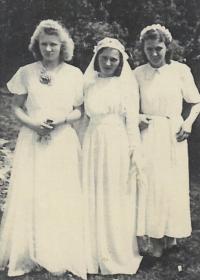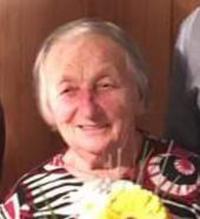“My father's brother did his military service in Prague under Beneš for an extended time. When Beneš was to fly to England, he was supposed to follow him there. But my aunt was pregnant with their baby and she did not want to go and so he stayed at home, but he maintained contacts with England. He would look conspicuous in Prague and so he moved to Kyjov, he had a job there, he worked as a librarian, and he was to organize the group of resistance fighters here. He organized doctors from the hospital and the other officers, and the priest from Ždánice, he was from Nechvalín, and Lovčice and Nechvalín were almost like one village and he befriended him in Nechvalín and he offered to him that if he ever needed it, he was ready to help and provide some hiding place. So he was hiding the paratroopers in his rectory. He had a group of people, and when the airplanes were flying over there and paratroopers were being deployed from them, they were dropping down weapons for them, and so on, and whatever was needed, and it was at night and they had to put it away before morning, because the authorities were searching for it. He was hiding about four people in the rectory and the food rationing system was in place and they had no food for them, so we, our family and people from Nechvalín, we were bringing some food for them there. They needed milk, for instance. I was a young girl and my parents agreed that I would be the one going to the rectory, because it would not be conspicuous. I was fifteen or sixteen and in the evenings or during the day I would go with a bag to the rectory in Ždánice. There were houses at the outskirts of Ždánice and a teacher had his house there. He was here already for many years, he was a principal in the school over there and he used to take a walk around his house in the evenings. He knew me, right, and one day he told me: ‘Girl, you come here quite often, don’t you? Where do you go?’ I replied: ‘To see a girl friend.’ And he just wagged his finger at me: ‘Surely a girl? Not a boyfriend perhaps?’ He noticed me and some other person might notice me too, and so I was afraid to go there and I would take a detour through the town and take another street, another path...” – “For how long did it last when you were going there with the milk?” – “For two months and then they already took over the rectory, they already found them there. A traitor got in there among them and he betrayed them. They shot all of them.” – “Even your father's brother?” – “Yes, they shot him, too, his wife died in Auschwitz and a three-year-old girl remained alive.”
